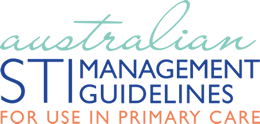How to take a sexual history
Normalise
- We are offering sexually transmitted infection (STI) testing to all sexually active people under the age of 30 as STIs are common and it’s important to treat early. Would you like a test while you’re here today?
- [If patient hesitates] Can I give you some information so you can think about it?
Use a hook
- We are seeing a lot more syphilis and gonorrhoea in recent months. These STIs can be serious but they are easy to test for and treat. Would you like a test today?
- Have you heard about the hepatitis B and human papillomavirus (HPV) vaccines? They protect against infections that can be sexually transmitted. Would you like to find out more?
Incorporate into existing discussion
- Since you’re here for a cervical screening test (or contraception), could we also talk about other aspects of sexual health?
- Since you’re here for your travel vaccines, let’s talk about other ways you can keep yourself safe while travelling.
- There have been babies born recently with syphilis. They get the infection during pregnancy. It’s a good idea to be checked for STIs while you are pregnant so an infection can be treated before it hurts your baby.
Adapted from NSW Health's STI/HIV Testing Tool
I’d like to ask you some questions about your sexual history so we can decide what tests to do. This information is confidential and it’s OK if it includes partners outside your current relationship. While we talk about your sexual history, do you have any terms for your genitals that you would prefer we use?
- When was the last time you had sex? (for incubation and window periods)
- Who have you had sex with in the last 3 months? (Prompt further if required. If they answer ‘my partner’ you then ask …) Other than your regular partner, is there anyone else that you have had sex with?
- Ask preferred language for body parts for LGBTQ+ people
- You can get STIs in your throat, bottom or genitals. Do you think we should test any of these sites?
- When was the last time you had sex without a condom? (for window periods)
- Have you had sex with people with a penis, a vagina or both? (If not obvious already, this question supports risk stratification)
- Have you ever been diagnosed with (or thought you had) an STI?
One approach, rather than asking a lot of questions which the patient may or may not be willing to answer, is to list some groups (below) and say something like:
‘People in these groups are at higher risk of having a sexually transmitted infection. Do you think any of these apply to you?’
People who:
- had sex overseas
- have been sleeping rough or homeless
- worked as a street-based sex worker
- had tattoos, especially overseas
- injected drugs or used methamphetamine, especially if they shared needles or any of the equipment used for injecting
- have been in prison
- have been a refugee or recent migrant
- identify as Aboriginal or Torres Strait Islander
- experienced violence from a partner
- have been on PrEP
- have been sexually assaulted or had sex they didn't want to have
Patients should understand what you are testing for and why, and any personal implications of a positive test.
I suggest we test for …. (e.g. chlamydia). This test will involve a urine test or vaginal or front hole swab. Chlamydia is easily treated but people often don’t know they have it. Are you happy to have a test? If the result is positive, we can also talk about your recent partners being tested.
Sometimes answering invasive questions is a major barrier to initial and repeat testing in people who are vulnerable to sexual shame and stigma. In this case, offer basic STI testing and complete sexual history and contact tracing if a result comes back positive.
This is less likely when clinicians routinely offer STI testing and adopt non-judgemental body language and questions.
- ASHM Sexual History Taking Video resource catalogue
- STI/HIV Testing Tool (NSW Health)
- STI Testing in Primary Care online learning module (WA Health)
- Online learning modules for rural health professionals (CERSH University of Melbourne)


